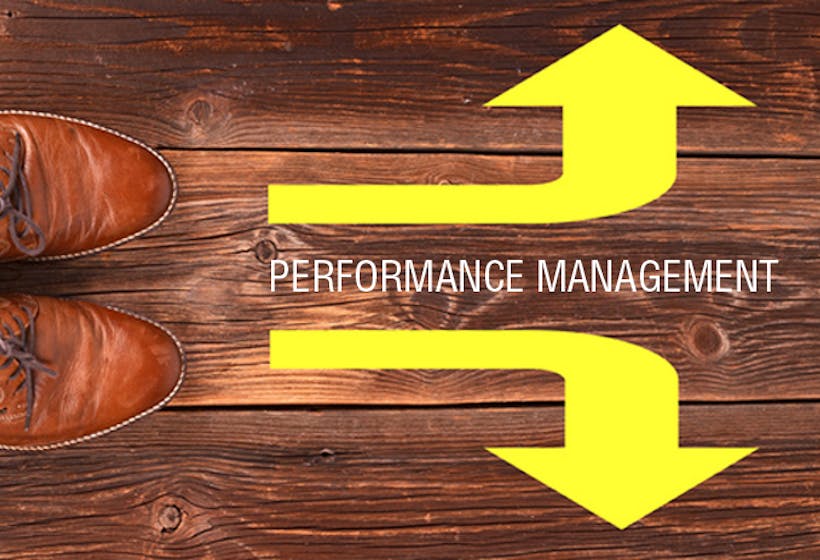
This last year has seen unprecedented changes in the field of employee performance management. It all started with high profile organisations such as Deloitte, Accenture and General Electric announcing that they were abandoning the traditional annual performance appraisal. This then started a domino effect with more than 52 large companies now moving their performance management processes away from once-a-year performance reviews. Numerous other organisations are following suit. Whilst a lot has been written in the media about what is wrong with annual performance appraisals, less has been said about what the alternatives are. So here are four principles of what I believe will underpin tomorrow’s performance management, based on my recent discussions with HR leaders and what the latest research is telling us.
Discover our 2020 Performance Management Trends to see what’s in store this year.
Principle 1. Emphasis on regular, high quality performance discussions
Performance management processes seem to have got lost in form filling and box ticking. Leading organisations are now putting the emphasis back on employees and their managers having regular conversations, or ‘check-ins’, throughout the year. Research from the NeuroLeadership Institute found that 68% of companies are recommending quarterly conversations or more. In practice, the majority of HR leaders I have spoken to are recommending monthly check-ins, although they are giving managers the discretion to change this frequency according to the needs of individual team members.
Principle 2. Frequent feedback
Millennials have now overtaken generation X as the largest share of the workforce. These 18 – 34 year olds have grown up in a world of instant feedback and for them, work should be no exception. Yet a recent survey by Wakefield Research found that 74% of millennials said they were “in the dark” about how their managers and colleagues think they are performing. To make matters worse, over half of those surveyed said their managers are not prepared to give feedback during performance discussions. HR leaders are telling me they want to address this by using technology to allow feedback to be given ‘in-the-moment’, at any time, and not just once-a-year as is often the case with traditional 360 degree feedback. They want to encourage more positive feedback, as well as constructive feedback, and for colleagues to get into the habit of giving each other feedback, rather than feedback being viewed as the domain of line managers.
Principle 3. Forward-focused reviews
Do I think that performance reviews will die out? Probably not. More than half of the HR leaders I have spoken to this year feel that there is still very much a place for having periodic longer term reviews in addition to regular check-ins. However, they will be less about assessing past performance and focus more on agreeing specific actions to build on past successes, learn from mistakes and enable personal and career development. As Ellyn Shook, Chief HR Officer at Accenture recently said, “Rather than taking a retrospective view, our people will engage in future-focused conversations about their aspirations, leading to actions to help them grow and progress their careers”. Such a shift won’t take place overnight as it will require managers to adopt a coaching style when discussing performance. Therefore, HR will need to focus their attention on development managers’ coaching skills, rather than designing new appraisal forms.
Principle 4. Keeping things simple
The CEB has been advocating for some time now that the HR profession has made performance management too complex in an attempt to increase objectivity. Whilst this was well intentioned, the net result has been unprecedented levels of disatisfaction, with over 75% of managers, employees and HR heads feeling that performance management results are neither accurate nor effective. Almost every HR person I have spoken to this year has told me that they want to simplify their performance reviews. Common themes emerging are to provide prompts for discussion rather than detailed forms to complete, and dropping performance ratings and time-consuming calibration processes. Many organisations are still using a paper-based approach and are increasingly looking at online performance management systems to help to simplify their processes.
